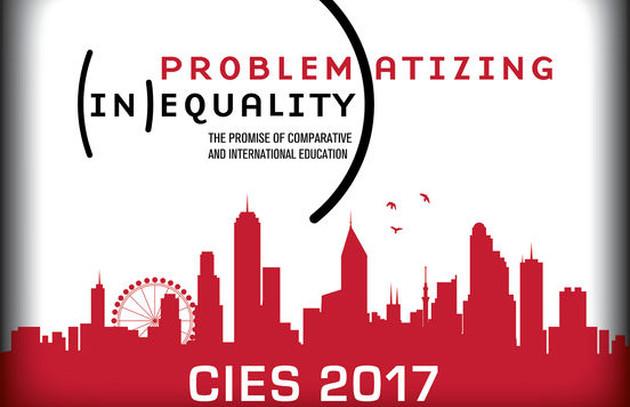cies-2017.jpeg

The UNESCO Institutes were well represented at the 61st annual Comparative and International Education Society (CIES) conference, one of the year’s biggest education events. The UNESCO Institute for Statistics (UIS), the International Bureau for Education (IBE), the UNESCO Institute for Lifelong Learning (UIL) and the International Institute for Educational Planning (IIEP) held numerous panels during the conference in Atlanta, USA, from March 5-9, 2017.
The CIES conference brought together some 2,700 education professionals and academics to exchange comparative, cross-cultural and international perspectives on the latest trends, issues and policies in education. With the new Sustainable Development Goals calling on countries to achieve 12 years of quality education for all by 2030, the Institutes brought a wealth of expertise to the table.
As the official source of internationally comparable data for SDG 4 – Education 2030, the UIS-UNESCO took the lead in addressing the measurement challenges through a series of panels on innovative methodologies, frameworks and indicators. The presentations covered a range of issues related to learning, the educational situation of children in crisis and early childhood development.
Equity in education is a critical but difficult area to measure. So the UIS presented a global strategy to help the international community respond to the demand for more and better data while also focusing on specific priority areas, such as learning. Five of the ten SDG 4 targets focus on learning yet there is currently no agreed upon approach to produce internationally comparable measures. In response, the UIS presented pragmatic steps to move forward on measures of learning outcomes needed to monitor these targets. By working with partners, the UIS is also finding innovative ways of using existing sources of information to better track the education situation of children in crisis while developing a wider set of measurement tools and practices to ensure that no child or young person is left behind.
See also: UIS at CIES 2017
IBE-UNESCO, a global center of excellence in curriculum and related matters, organized, chaired, and presented in key sessions, including a Presidential Panel on future competencies and roundtables on the role of curriculum in preventing violent extremism, learning in the 21st century and inclusive education – topics that lie at the core of the IBE’s current work. A highlight of the IBE participation was the CIES Presidential Panel, chaired by Director Mmantsetsa Marope, which brought together leading scholars in the field, to discuss the future competencies needed in the 21st century and the crucial role of curriculum for development.
IBE-UNESCO also launched the new Prospects, Comparative Journal of Curriculum, Learning, and Assessment; and the latest books published in the IBE on Curriculum, Learning, and Assessment series: Learning to Educate: Proposals for the Reconstruction of Education in Developing Countries; and From Exclusion to Excellence: Building Restorative Relationships to Create Inclusive Schools.
See also: IBE-UNESCO at CIES
UIL-UNESCO’s main contribution was a presentation on UNESCO’s new initiative for literacy, the Global Alliance for Literacy within the Framework of Lifelong Learning (GAL). In the panel titled, ‘The New Global Alliance for Literacy: From Problematization to Progress’, UIL together with other panellists from UNESCO and other institutions and organisations, offered insights into the strengths and challenges of the Alliance. Particularly, the session delved into latest institutional development of the alliance, and how, it could better concert efforts to achieve its mission. GAL aims to foster and coordinate a multi-stakeholder partnership and promote innovative action for a more literate world. The ultimate objective for this is to achieve SDG 4, target 4.6: ‘By 2030, ensure that all youth and a substantial proportion of adults, both men and women, achieve literacy and numeracy’.
With seven IIEP-UNESCO experts from our three offices (Paris, Dakar, and Buenos Aires) attending CIES 2017, IIEP organized and participated in a number of panels. Covering a range of issues, the panels brought new insight, research, and perspectives on how the global education community can plan for stronger education systems that are aligned with the new Education 2030 agenda. This year, IIEP’s contributions had a strong focus on crisis-sensitive planning, but also covered a range of other issues including equity in education, open data and transparency, teacher careers, and learning outcomes.
“The two big themes of today’s education goals are equity and learning—we need to continually think about whether our programs and our interventions are advancing those goals,” IIEP-UNESCO Director Suzanne Grant Lewis remarked at the opening ceremony of the 2017 Comparative and International Education Society (CIES) conference. Speaking about the importance of “protecting our instinct to care,” she urged attendees to continually renew a personal commitment to developing high-quality education systems for all.
See also: CIES 2017: The many dimensions of quality education for all





